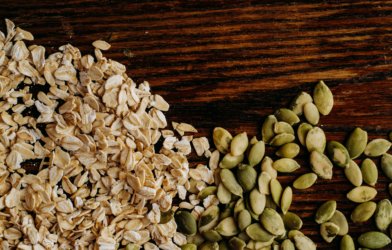
fiber


Why Eating More Fiber Isn’t Enough: A New Look At Your Gut MicrobesSeptember 13, 2025

Revolutionary Study: We’ve Been Wrong About What Feeds Your Gut BacteriaJune 3, 2025

The Hidden Reason Your Heart Isn’t Benefiting From FiberMay 25, 2025

High-fiber diet linked to lower risk of dementiaJanuary 20, 2023

‘Psychobiotic diet’: Fermented foods and fiber may lower stress levels, study showsDecember 1, 2022

Too much of a good thing: For IBD patients, more fiber can mean gut hellOctober 15, 2022

High fiber diet increases liver cancer risk in people with rare birth defectSeptember 28, 2022

Which fiber supplement is best? It doesn’t matter, just consume more of it, study concludesAugust 1, 2022
